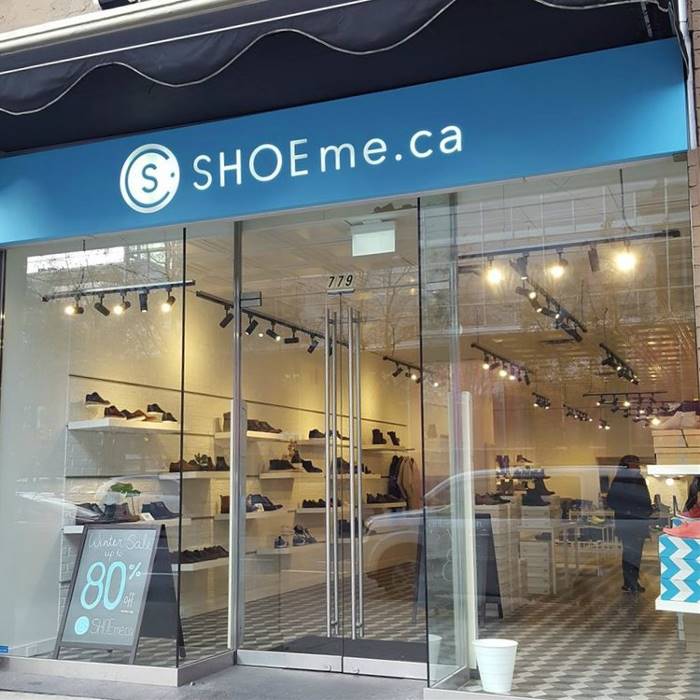Canadian Retail Continues to Polarize as Stores Close
By Retail Insider
JAN 31 2017 09:41:57
The polarization of Canadian retail continues into 2017, with a number of retailers closing store locations while both luxury/high-end and value-priced retailers continue to expand. We recently published our 2017 Canadian retail industry forecast, and this update considers the recently announced Canadian store closures.
Since the beginning of January, several retailers have either announced they were exiting Canada, have sought bankruptcy protection, or expressed the possibility that they could close their Canadian stores. These include the following: the parent company of menswear retailer Tip Top Tailors entered creditor protection, which could result in the closure of stores and staff layoffs. HMV Canada announced that it would close all 102 Canadian store locations, marking the end of an era for the company that entered the Canadian market more than 30 years ago in 1986. Vancouver-based footwear retailer Shoes.com announced that it has shuttered its operations, including its e-commerce websites and two brick-and-mortar stores.
Further, Toronto-based Jean Machine, a leading denim specialist for four decades, entered bankruptcy protection in early January this year. At the same time, German women’s fashion brand Gerry Weber has closed its Canadian stores in order to focus on wholesaling, while American Apparel is in the process of liquidating and closing its Canadian stores.
 (Vancouver's 'shoeme.ca' store was only open for a couple of weeks. Doors were locked on friday. Photo: helen Siwak)
(Vancouver's 'shoeme.ca' store was only open for a couple of weeks. Doors were locked on friday. Photo: helen Siwak)
Unfortunately, this likely won’t be the end of store closings in Canada — Retail Insider has learned that a Quebec-based company will soon announce the shuttering of one of its retail concepts, resulting in the closure of all of its stores. Other retailers are also struggling, according to sources, and may decide to end their operations in 2017.
Polarization in Canadian retail has been a hot topic for the past couple of years, with HRC Retail Advisory CEO Antony Karabus noting in a May, 2015 article that Canadian retail would continue to expand in the luxury and in the value-priced sectors, while “middle” retailers would continue to be pressured by the polarization impact. It appears that Mr. Karabus’ May 2015 polarization predictions are coming to fruition in Canadian retail.
Luxury retailers have continued to expand into Canada over the past two years, with Nordstrom and Saks Fifth Avenue opening a number of stores, Harry Rosen and Holt Renfrew remodelling many of their stores, and luxury mono-brands both adding new stores and expanding existing stores. A number of the country’s leading brokers say that luxury brands continue to remain very interested in both Toronto and Vancouver, and are also eyeing other markets as they mature and the economy improves. Luxury mono-brand boutiques will open in Vancouver’s ‘luxury zone’ this year, with Richemont making major investments in multiple locations, as well as LVMH and others set to make announcements. In Toronto, mono-brand luxury retail is expanding with a particular focus on the two ‘Yorks’ - Yorkville and Yorkdale Shopping Centre, which will both see multiple luxury store openings this year.
Some existing luxury boutiques are also reporting high sales, with some sales productivity numbers in Vancouver and Toronto (particularly Yorkdale) being in the stratosphere. It is clear that there are wealthy people in Canada who are shopping, not to mention tourists, who are also spending freely in Canada’s luxury and premium-priced stores.
High-end department stores are also doing well, with some planning to continue opening new locations. Nordstrom will open a third Toronto location in September of this year, and it could open more locations after examining its Canadian operations. Currently, the company’s Vancouver, CF Toronto Eaton Centre and Yorkdale stores are among the top performers in the chain, according to multiple sources. Homegrown Holt Renfrew, which was expected to see a significant impact in sales with the entry of Nordstrom and Saks, continues to maintain its position as the country’s leading luxury retail for women (Harry Rosen dominates for men), while Saks Fifth Avenue readies to open stores in Montreal and Calgary and, at some point, Vancouver.
At the lower-end, discount and off-price retailers continue their aggressive store expansions. Montreal-based Dollarama is opening stores at a rapid rate, as it identifies opportunities and secures real estate. Giant Tiger, catering to value-seeking families, is regularly announcing store locations as it sees considerable success despite increasing competition. American big-box retailer Costco continues to see strong sales in Canada, with a level of penetration about twice that in the United States. Target’s exit from Canada has been beneficial to a number of retailers as well, with real estate opportunities for TJX Companies, which continues to aggressively open stores under its Winners, Marshalls and HomeSense banners.
Off-price retailer Saks OFF 5TH is also announcing and opening stores at a rapid rate, with plans to operate 25 Canadian stores by next year. Nordstrom Rack will enter Canada next year, with plans to open between 15 and 20 stores in this country.
Fast-fashion retailers also continue to grow their Canadian operations — Forever 21 and F21 Red will open new stores this year, as will H&M, Old Navy and Inditex, best known for its Zara nameplate. Uniqlo will also continue expanding in Canada, with more store announcements expected to be made in the coming months.
At the same time, mid-market retailers appear to be shrinking in size, or closing shops altogether. An exception to this, however, is mid-priced retailers that have differentiated themselves from competitors, and those with a particularly compelling value proposition. For further discussion on these themes in the Canadian retail market, we will follow up on this article with a Q&A interview with Mr. Karabus of HRC Retail Advisory.